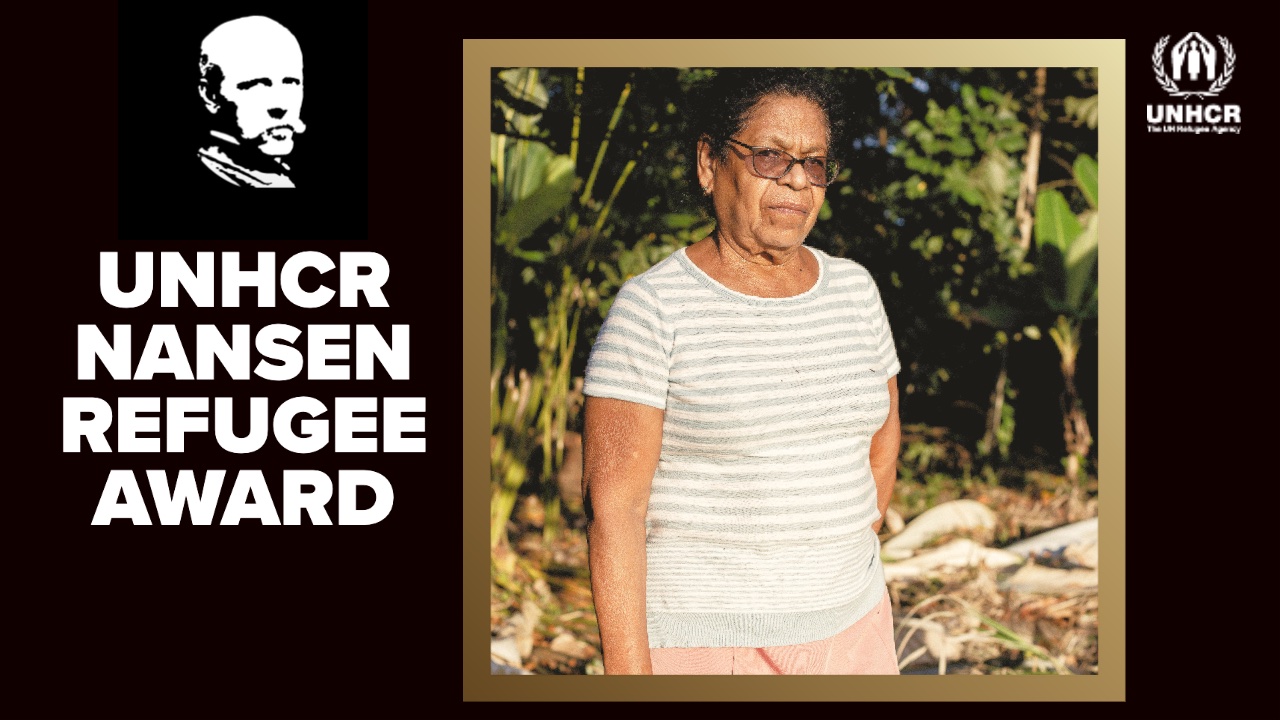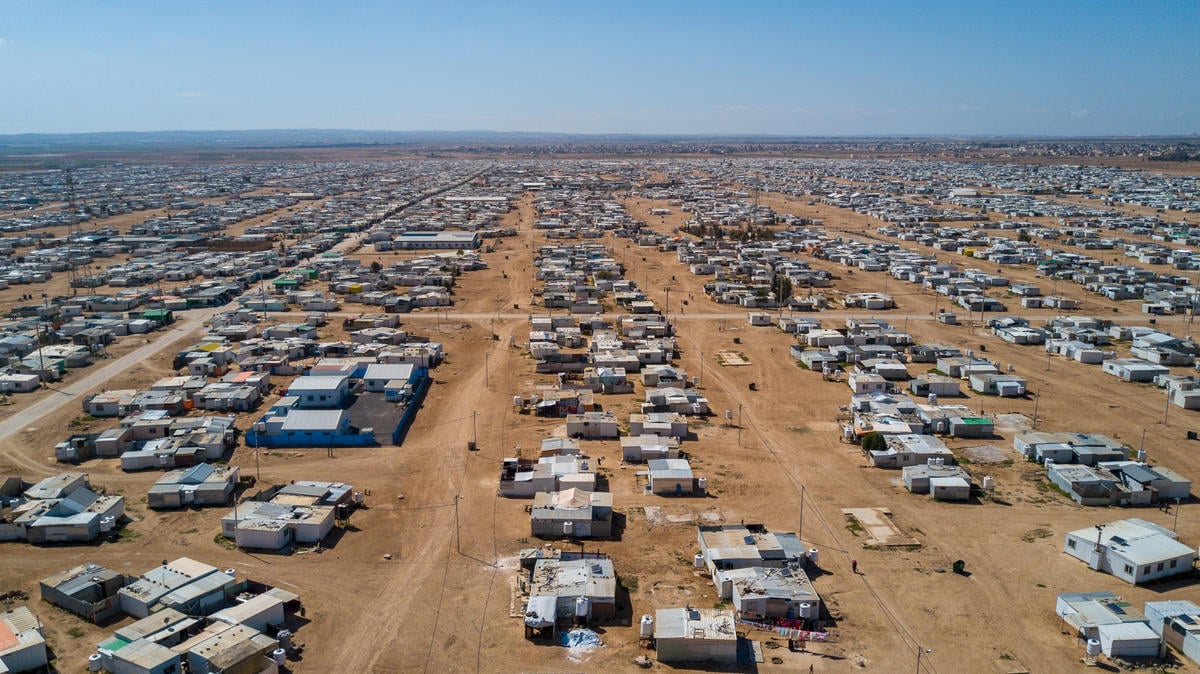Stitching up a new life: Afghan refugees learn to support themselves in Iran
Stitching up a new life: Afghan refugees learn to support themselves in Iran

TEHRAN, Islamic Republic of Iran, June 12 (UNHCR) - Afghan refugee Nafiseh, a 28-year-old-widow with eight children, looks up from cutting out a dress pattern just long enough to express optimism about her own future.
"Now I feel self confident. I feel I can make it, regardless of where I live," she says, barely pausing in her industrious work. "I know how to sew and can feed my children and even send my two elder daughters, who are 10 and 12, to school, when they have never studied before."
Nafiseh is one of the Afghan women benefitting from a UNHCR-funded project designed to teach refugees in Iranian cities skills that will enable them to earn their own living.
"Following a sharp drop in the number of Afghans going home from Iran, UNHCR is now focusing on finding solutions to refugees' problems here in the Islamic Republic of Iran, mainly by giving them skills training for self sufficiency," says UNHCR Representative in Tehran Carlos Zaccagnini. There are 935,512 registered Afghan refugees and another 43,916 registered Iraqi refugees in Iran, according to government statistics.
Widows with many children, like Nafiseh, are singled out to receive the UNHCR-funded training, conducted in conjunction with the Iranian Ministry of Education.
Even before her husband died two years ago, Nafiseh could never have sent her children to school on his construction worker's pay. But she is no longer an uneducated housewife depending on low wages. Thanks to orders from neighbours who admire her new skills, she is now independent and can provide and plan for her family.
UNHCR has spent US$2 million on the vocational training project since it started in 2007, and this year will spend a further US$300,000. The programme has trained nearly 6,000 Afghan refugees; last year women outnumbered men in the programme, but this year the numbers are equal.
At first, UNHCR encouraged women to sign up for non-traditional classes such as carpentry and welding, but women refugees preferred to stick with tailoring and hairdressing, while the men learn carpentry, plumbing, electric wiring, general mechanics and welding. Computer and language classes are attended by both men and women.
The UNHCR teams who regularly monitor the training centres have noted the refugees' progress. "In tailoring classes, beautiful dresses were made by the refugees, and the trainers were very impressed with the talent and perseverance of the refugees," says Roya Zargarbashi, a UNHCR programme assistant who regularly monitors the centres in Tehran, Esfahan, Qom and Ahwaz
Perhaps because Nafiseh herself is illiterate, she understands how important it is for her own daughters to attend school. She particularly wants them to have the opportunities she lost out on by marrying while still a teenager, and is very proud to be able to afford an education for her girls.
"I am happy my daughters can attend school," Nafiseh says, turning back to her pattern-cutting. "This will provide them with all the opportunities in life of which I was deprived."
By Dina Faramarzi in Tehran, Islamic Republic of Iran








